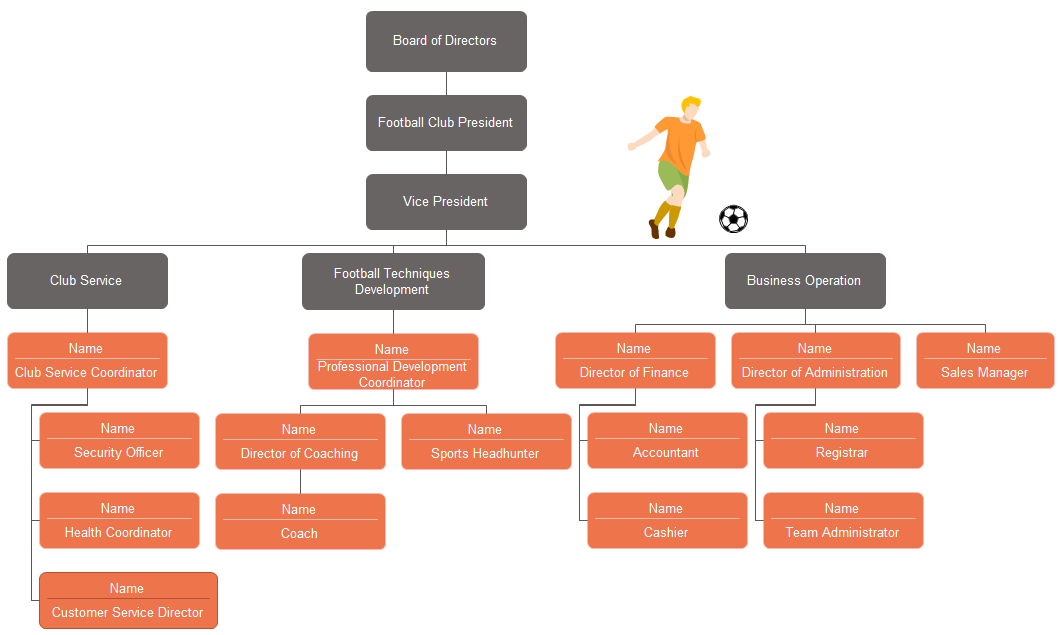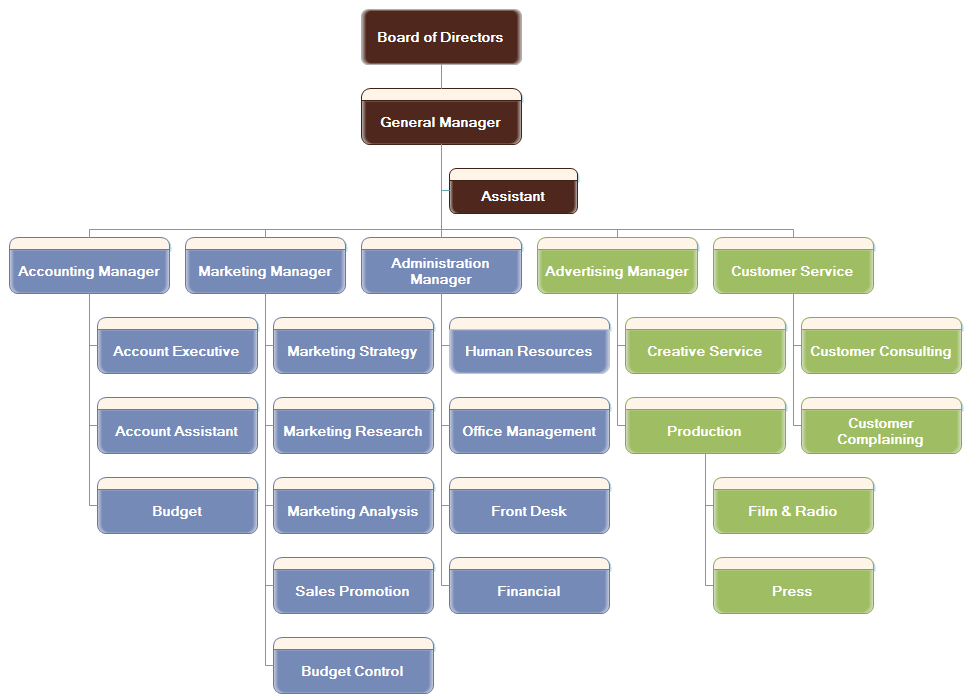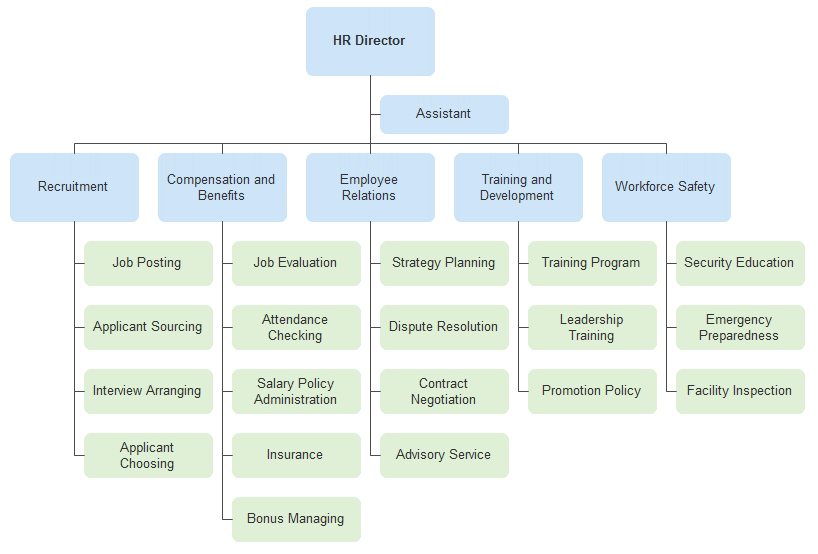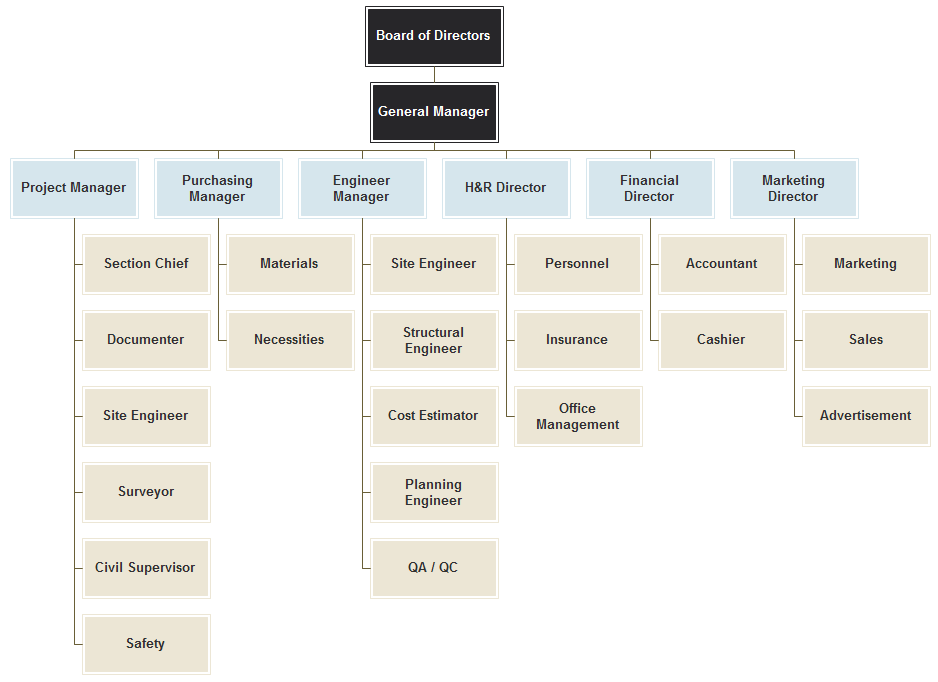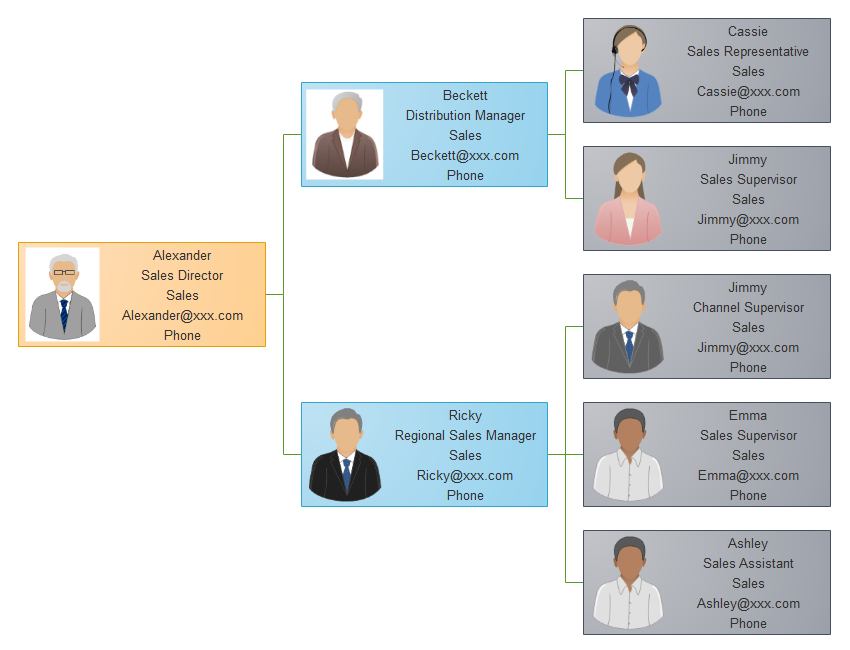An organizational chart is an important part of an organization, as it’s the guidance of employee hierarchy relations. However, some small businesses choose to omit this step as their employee relationships are clear to see. This seems not wise. Why small businesses also need org charts? An org chart means much more than just outlining the reporting relationships of the staffs. It has many potential benefits on managing human resources issues. Now let’s talk about some key benefits of organizational charts:
Long ago, football clubs were formed by friends, workmates, football lovers or sporting associations to enjoy playing the game and competing. But as time goes by, football clubs are becoming more formal, some larger clubs have turned to limited companies. Different clubs have different cultures and ways of construction. Here is a sample of a football club organizational chart. Let’s see how this club is constructed.
The main function of an advertising agency is the promotion of goods, service, companies, and ideas by using creative strategies. An ad agency is generally independent of the client and provides an outside point of view for the client’s products or services.
Common Functional Departments of a Typical Ad Agency
As you can see a series of divisions such as accounting, marketing, administration, advertising, customer service and more in the following org chart.
The main function of HR department is to oversee department functions and manage employees by planning, implementing, and evaluating human resources policies, principles, and programs. Basically, it involves functional activities including hiring qualified employees, establishing compensation structure, training staffs, addressing employee relations matters, and maintaining workplace safety.
Function Units:
- Recruitment
- Compensation and Benefits
- Employee Relations
- Training and Development
- Workforce Safety
An HR organizational chart example:
The construction company org chart is a graphical depiction of the roles and structure of the organization. Using an org chart, staffs and stakeholders can clearly recognize the operational relationships, so that they know how does the company work.
Generally, a construction company contains basic function units including:
HR, Purchasing, Project, Engineering, Finacial, and Marketing department.
An effective school organizational structure involves better work distribution, efficient management control, and good information processing.
This is a sample school organizational chart for a middle school organizational structure: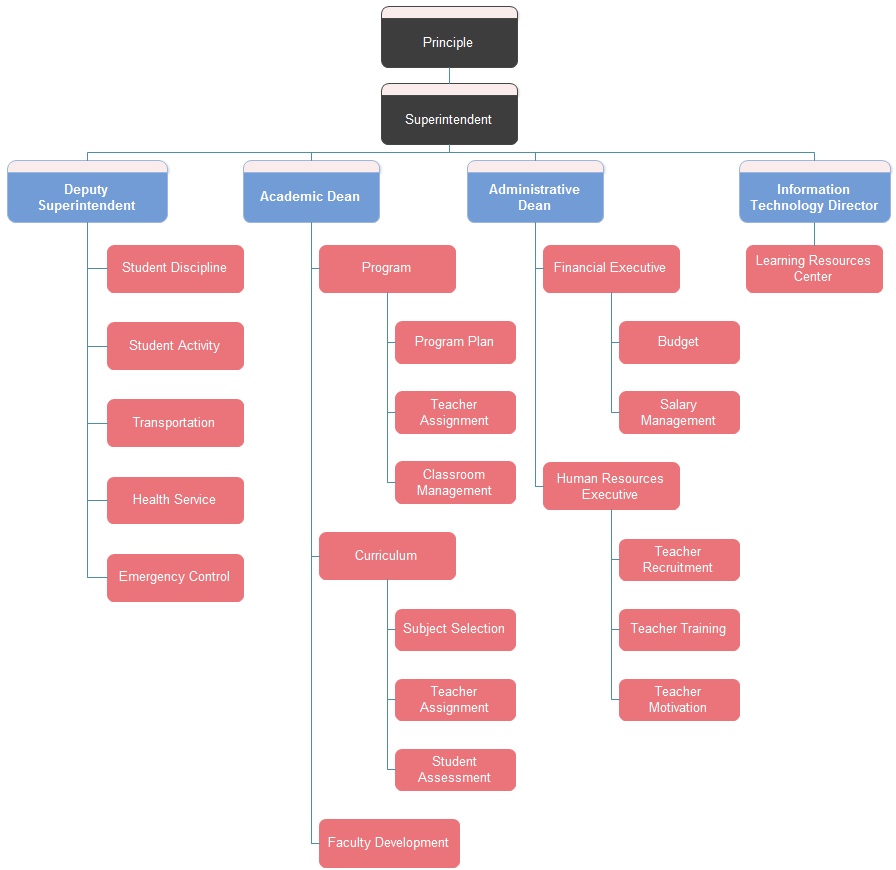
Alternatively, you can go for this Org Chart Creator for more info.
Every company needs an organizational chart to visually show its internal structure – the company divisions, employee job titles and reporting relationships. With an organizational chart, employees can better understand their roles and responsibilities. It’s a visual guide telling staff and stakeholders who they report to and who they get information from.
Things Need to be Consider When Building Company Org Charts
There are many factors a company needs to consider when building the organizational structure, including the company size, business model, programmatic work processes, company values, etc. Before creating a company organizational structure, the following things need to be clear in mind:
- Have a clear execution strategy – to determine how to run your business.
- Clarify the purpose and accountabilities of each organizational function.
- Place each major and minor function in its correct location.
Every hotel, whether it’s big or small, needs an organizational structure to carry out its daily operations. It is used to help divide tasks, specify the job for each department, and delegate authority within and among departments. Effective job specifications will increase work productivity and efficiency. Each hotel organizes the workforce in different ways. Here shows a medium size hotel organizational structure.
It was basically segmented into six divisions: finance, front office, human resources, food and beverage, sales and logistics as the following organizational chart:
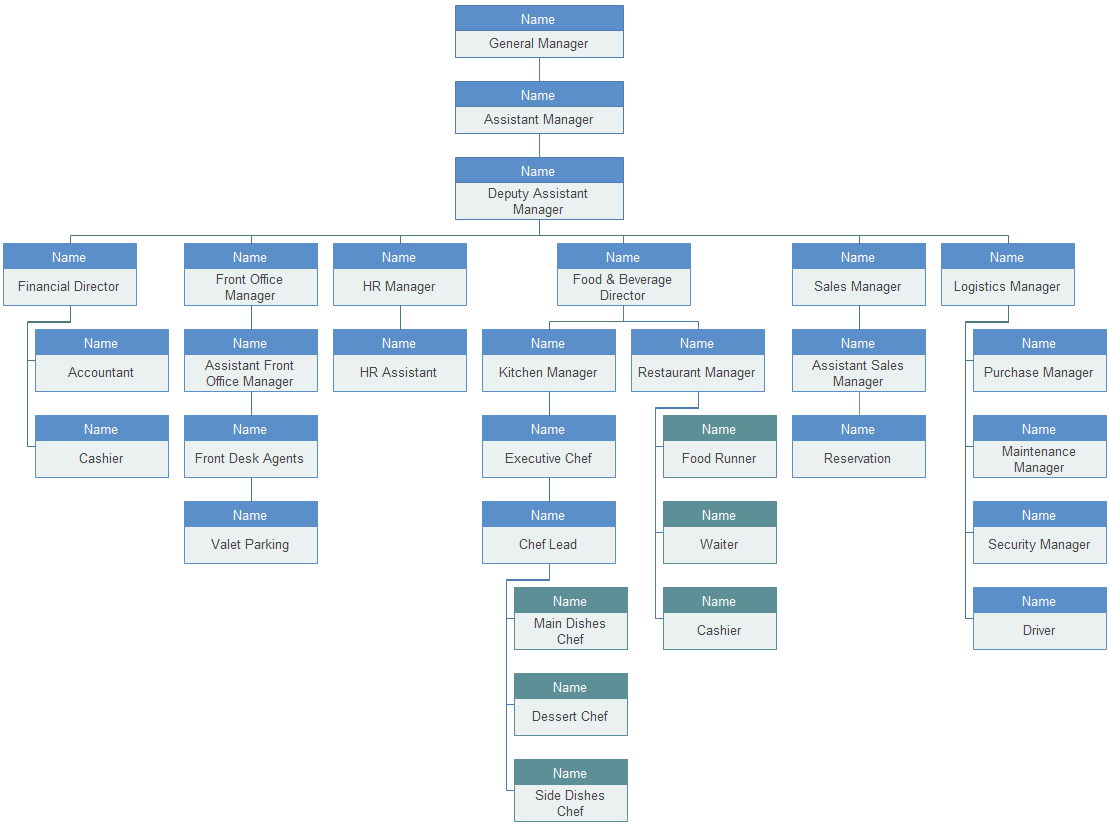
What is a Vertical Organizational Structure
The vertical organizational structure is a strict hierarchical structure with power emanating from the top to the bottom. With a chain of command well defined, decisions usually move from the top down through layer by layer, and people at the bottom have the least autonomy. In the structure, each person is supervised by the one directly above him. Employees can clearly monitor their roles and duties.
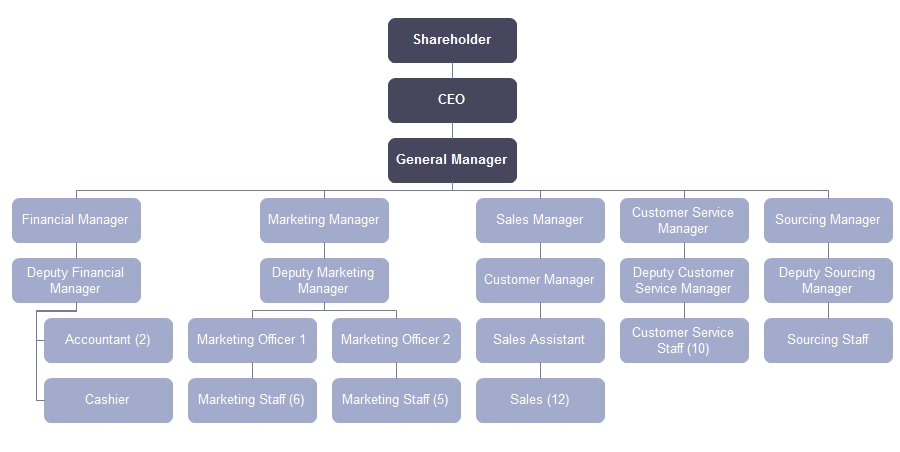
What is Horizontal Organizational Structure
Unlike vertical and matrix organizational structures, a horizontal organizational structure has fewer layers, normally two or three. It doesn’t have many chains of command. The top position of the structure is the owner of the business. The second layer contains managers or team leaders who report to the business owner. The third layers are team members supervised by the managers or team leaders in the second layer. The horizontal org chart has eliminated many middle management levels, thus can be considered as an employee-centered with emphasis on teamwork and collaboration. Without going through complicated hierarchies, employees have more contact with managers and even business owner.

